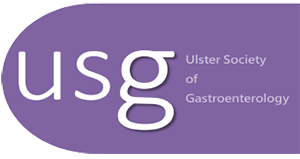Vedolizumab for Inflammatory Bowel Disease – Success or Failure?
Authors
Dobson G, McGuigan A, McIlmunn C, Tan CJDepartments / Institutions
Belfast Health and Social Care TrustPublication Date
Autumn 2018Introduction
Infliximab & Adalimumab have long been indicated for induction of remission of Crohn’s Disease (CD) and Ulcerative Colitis (UC). More recently Vedolizumab has been considered as a “rescue” therapy for unresponsive disease. However, there are no data to demonstrate if the use of Vedolizumab helps to prevent surgical intervention.
Aims
To assess how successful Vedolizumab is in preventing progression to surgery
Methods
We performed a retrospective review of CD & UC patients who were commenced on treatment with Vedolizumab. Success was determined by induction of remission. Failure was determined are either cessation of the treatment or progression to surgical procedure.
Results
48 patients had CD. Age at induction ranged 15-66 years. 33 (69%) patients failed to achieve remission on Vedolizumab – 9 had surgery, 24 were switched to a further Biologic agent – 8 of which subsequently had a surgical procedure.
25 patients had UC. Age at induction ranged 16-69 years. 13 (52%) patients failed to achieve remission on Vedolizumab. 10 have underwent a surgical procedure, and 1 further has been recommended to have surgery but refused.
Significant differences in success of treatment was identified when patients were analysed by age at induction (p>0.01).
Conclusion
Despite the success of Biologic therapies there remains some doubt as to their longer-term outcomes in regards to preventing surgical intervention. In particular this early data appears to show a low rate of success in patients treated with Vedolizumab. The rate of 20 surgery in this small group is higher than expected, and questions its purported benefits.
Latest News
Gastroenterology FK Meeting Provision and Challenges
Posted on: 2nd April 2021Latest Event
There are no up-coming events.E-Publications
Download our latest Documents


